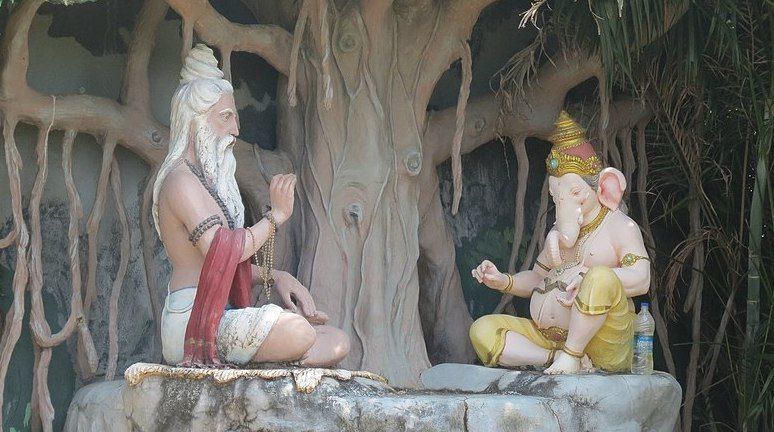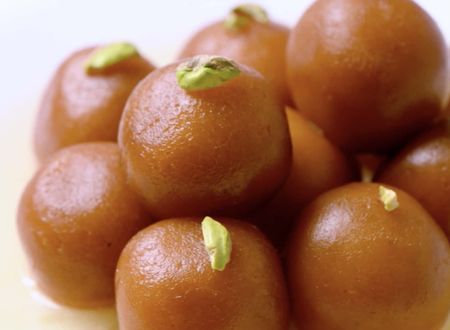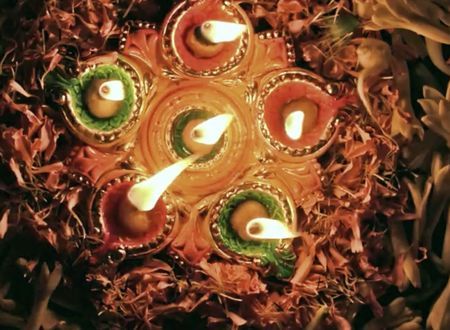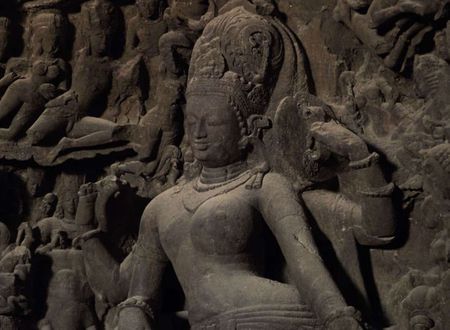Part 1 of the series can be found here
Part 2 of the series can be found here
Part 3 of the series can be found here
Part 4 of the series can be found here
Part 5 of the series can be found here
Part 6 of the series can be found here
Part 7 of the series can be found here
Part 8 of the series can be found here
Anything is Possible With God’s Grace
Anything is possible with God’s Grace.
Mookam Karothi Vacalam Pangum Langayathe Girim
Yat Kripa Tam Aham Vande Paramananda MadhavamWith God’s Grace, A dumb person can speak, a lame person can start walking. I prostrate to That God, Madhava. – Gita Dhyana Slokas.
The Pandavas lived a virtuous life. Their virtue made them fit recipients of the Lord’s Grace. The basis of the Mahabharata is the virtuous life lived by the Pandavas.
More Eclectic Wisdom From Vidura and Parting Words
- When a person prostrates to elders each morning, they get fame, long life and strength.
- Vedas get polluted when they are not recited regularly (by individuals who have learned the Veda)
- When Brahmanas live without undertaking any other Vratas (e.g. fasting on Ekadasi), that compromises their Bhramanatva.
- Human beings are polluted when they lie.
- The desire to drink cannot be satiated by drinking. (This is a never-ending desire, arising regularly)
- A person who earns Rs. 100 a day also lives in the world. A person who earns Rs. 1000 a day also lives in the world. We shouldn’t think that we will live happily as a result of earning more or desiring more.
- One should never deviate from Dharma whatever be the price. Dharma is eternal. Joys and sorrows are ephemeral. The body is ephemeral.
- Vidura reminds Dhrtharashtra many kings have lived and ruled the kingdom, with the idea “this is mine”. All of them are no more, this is the nature of life.
- None of the things we hoard will come with us. The body will not. Old age will not. Only two entities will follow us after death: our punya and papa.
- Therefore, we should take a sankalpa to be righteous and just.
Vidura once again requests Dhrtharashtra to be impartial to the Pandavas and Kauravas.
There is No Such Thing as Death. Or Is There?
Vidura tells Dhrtharashtra there is no such thing as death. Dhrtharashtra is confused – everybody sees death everywhere – then how can Vidura say there is no such thing as death?
Dhrtharasthra was especially interested in the answer to this question. A war seemed inevitable. A defeat to the Kauravas seemed inevitable as well. Is there any way his sons could achieve immortality even when defeated?
Vidura brings in a specialist to provide the answer. He tells Dhrtharasthra Sanatsujata, one of the four Sanatkumaras, is best suited to expound on this topic. At that point, it was 3 AM. They had another few hours before the court would convene.
Sanatsujata apparated and immediately appeared before Dhrtharashtra and Vidura.
Dhrtharasthra prostrated before Sanatsujata and asked the same question: “Oh Sanatsujata, you say there is no such thing as death. Indeed, Indra and Virocana went to Brhaspathi with the same question, how to achieve immortality. So tell me – is there something such as death or not?”
Story from the Chandogya Upanishad: Indra and Virocana Seek Self-Knowledge
Indira, the king of the Devas, and Virocana, the king of the Asuras, both went to Brhaspathi to learn Self-Knowledge – to reach the state beyond hunger, thirst, old age, death and other afflictions. Brhaspathi asked them to stay with him for 32 years. For 32 years, they did not receive any lessons, they stayed and performed services to their Guru.
At the end of 32 years, Brhaspathi told them “The body is the Self”. Virocana was happy with this, left, and lived a life filled with eating, drinking and making merry.
The body being the Self, however, did not sit well with Indra. The body changes. The body perishes one day. Can such a body be the Atma?
Dehinosmin Yatha Dehe Kaumaram Youvanam Jara
This body goes through transformations from childhood to adulthood to old age. – Bhagavad Gita Verse 2.13
Indra went back to Brhaspathi and relayed his thinking. Pleased, Brhaspathi made him stay for another 32 years, and eventually another 32 years, and after a grand total of 96 years, Indra received Self-Knowledge.
adṛṣtam avyavahārayam agrāhyam alakṣaṇam
acintyam avyapadeśyam ekātma-pratyaya-sāram
prapañcopaśamam śāntam śivam advaitam
caturtham manyante sa ātmā sa vijñeyaḥ – Mandukya Upanishad, Verse 7It is unseen, non-transactional, cannot be grasped by the senses, doesn’t have qualities, it can’t be thought of, it can’t be defined, it is one in essence, it is the suspension of this relative world. It is calm, auspicious, non-dual. It is known as the fourth (transcendental) state. This is the Atma. And this Atma is to be realized.
Inadvertance is Death
Both stances – that there is death and that there is no death – both are true, said Sanatsujata. From a worldly standpoint, there is indeed death. When a person puts in efforts and transcends worldly existence and realizes the Self, there is no death for him.
Pramadam Vai Mrtyuh – Sanatsujateeyam
The famous statement “Pramadam Vai Mrtyuh”, i.e. inadvertence is death, is found in the Sanatsujateeyam.
What, then, is this Pramada, which is translated commonly to inadvertence or carelessness?
Adi Sankara, who has written commentary on the Sanatsujatiyam, provides an explanation. Pramadam is the inordinate value we place to anatman, the temporary body and the ephemeral world.
Our real nature is Brahman. The negation of Brahman is death.
The Pramada lineage has ego high up the hierarchy. Ego naturally leads to entitlement of various desires, satisfaction of which leads to greed and delusion, and when it goes unsatisfied it morphs into anger. This Pramada parampara is mrtyu (death).
Caught in this net of delusion, most of the world goes after petty bodily desires, and self-realization takes a backseat.
A corollary, then, is to kill desire at the root the moment it arises, to prevent it from morphing into anger, delusion and such.
Two Questions on Punya (Dharma) and Papa
Dhrtharasthra asks two questions:
- Will the sins (papa) I have accrued destroy my punya?
- Will the Punya I have accrued destroy my sins (papa)?
Sanatsujatiya answers each question separately.
Will the sins (papa) I have accrued destroy my punya?
The answer is a resounding no. The good that we do will definitely help us. Yes, we have to face the consequences of our sins, but they may well be mitigated by the good we’ve done.
Swalpam Api Asya Dharmasya Traayathe Mahatho Bhayaat – Bhagavad Gita 2.40
Even a little bit of good acts performed can protect against great fears
Will the Punya I have accrued destroy my sins (papa)?
The answer: It depends.
If you perform an action for a result you have in mind, you will (likely) get that result. This kind of an action is a kaamya karma. This, however, will not destroy sins.
For example, in various religious rites, the priest reads out the phala we ask out of the ritual, in the sankalpa. And we repeat it. We ask for:
Kshema – Well being
Sthairya – Stability
Dhairya – Courage (pertaining to bravery)
Veerya – Courage
Vijaya – Victory
Aayuh – Long Life
Arogya – Good Health
Aishwarya – Prosperity
And more.
When we do an action without asking for the results, that is called nishkaama karma. Actions performed with the Bhaava of Ishwara-Arpana-Buddhi (dedicating actions to the Lord, and not desiring any gain). And that will help destroy sins.
On Silence (Mauna)
Dhrtharashtra asks Sanatsujata to expound on silence (mauna). Sanatsujata obliges:
- The rishis have specified three occasions where silence must be followed: In the shower, while performing homam (fire rituals) and while eating.
- If we speak while showering, Varuna Bhagavan steals away our good looks.
- If we speak in the middle of a homam, Agni Bhagavan steals away our aishwarya
- If we speak in the middle of a meal, Yama Bhagavan steals away our aayu (years from our life)
- While three instances are mentioned above where silence is beneficial, this is not an exhaustive list. Silence is preferable in several instances.
- Maunasya Kalaham Naasti – Silence has the benefit of precluding altercations and controversies.
- Paramatma’s Swaroopa is Silence
- Yatho Vaco Nivarthanthe Aprapya Manasa Saha – Upanishads. Speech returns back like a bad penny after being rejected from the realm of the Paramatma.
- When one turns inward, the meditative efforts take a person to that state of silence, which is verily Paramatma, which transcends words.
Shakha Chandra Nyaya
As we just saw, the Supreme State transcends words. Words, therefore, are inadequate in taking us to the Supreme State. However, they can serve as pointers.
On the third day after the new moon, the moon is starting to grow and is not easily visible. When I’m not able to see the moon, my friend helps me see it, “You can see the moon right there, on the corner of that tree’s branch”.
Using the branch as a pointer, the moon is indicated. Similarly, the Vedas are a pointer to indicate Brahman.
Sanatsujata Takes Leave
This article contained but a minuscule sampling of the Sanatsujateeyam. Reading the Sanatsujateeyam in full is a worthwhile pursuit – a google search reveals several free PDFs online.
Sanatsujata spoke on the following topics and more.
- Sanatsujata analyzes death in detail
- Sanatsujata explores the state of deathlessness
- What is Satya (Truth)?
- What is Mauna (Silence)?
- What is Brahmacharya (Celibacy)?
- What is the methodology/approach to realize Brahman?
Sanatsujata echoes the Upanishad teachings and concludes by saying Brahman is one, and Brahman is Satyam.
The time now is close to 6 AM, and Sanatsujata takes Yudhishtira’s leave
Sanjaya Delivers Yudhishtira’s Message in the Court
Sanjaya relayed Arjuna’s words message in the Sabha (court):
- The Pandavas ask for half their kingdom
- Else, they will meet you (the Kauravas) in the Battlefield.
- Furthermore, you have seen me (Arjuna) battle single-handedly and defeat you in Virata kingdom. Imagine what you will be up against in a real battle. Where I will bring my A-game. With Krishna as my charioteer.
Bhishma exhibits fear on hearing this, and begs Duryodhana to give up his stubbornness. “Don’t think Arjuna and Krishna are ordinary. They are verily Nara and Narayana. You will remember my words when you are about to face defeat in the battle”
Karna tells he alone is enough to take on anyone. Bhishma chides Karna, telling him if he forgot the defeat Kauravas faced in Virata’s kingdom. In addition, Karna’s brother Sangramajit got killed. And that too, not by Arjuna in his usual form, but as a eunuch. Bhishma’s words angered Karna, and he took a sankalpa: “I will not draw my weapons in the war till Bhishma falls down”. This saddened Duryodhana. If Bhishma and Karna fought together, they would have made an invincible duo. However, Divine Will took its course, making Karna take this sankalpa.
Sanjaya Reports The Astonishing Scene from Krishna’s Chambers
Sanjaya went to call on Krishna in his chambers. Krishna summoned him inside. Sanjaya saw a remarkable sight. Two couples, Krishna-Satyabhama and Arjuna-Draupadi were lying down on the same bed. Arjuna’s one leg was on Draupadi, the other leg was on Satyabhama.
However close two couples are, you never find this kind of a scene (in good spirit). Seeing this scene, Sanjaya didn’t experience any shyness, awkwardness or disgust. He felt delight and goosebumps.
“What kind of a beautiful friendship theirs must be”, Sanjaya thought. It was like fire and air coming together. He got scared.
Sanjaya gives his final piece of advice to Dhrtharashtra:
“Oh king, don’t think of Krishna as an ordinary person. He can burn down all worlds just by a mere glance.
Where there is Satya, Dharma, the hesitancy to willingly commit a mistake, Bhagavan is there. So is victory.”
Duryodhana Refuses to Listen to Dhrtharasthra
Dhrtharasthra is convinced. “Go and surrender to Krishna”, he advices Duryodhana.
“Krishna is dear to Arjuna. Therefore, I have no intention of doing any such thing as surrendering”, replies Duryodhana.
Dhrtharashtra gets angry now and takes it out on Gandhari. “Look at the kind of son you’ve given birth to”, he sneered.
Gandhari calmly tells Dhrtharasthra, “You are still the king. It is in your power to arrest Duryodhana and give half the kingdom to the Pandavas. After that, you can release Duryodhana.”
Gandhari tells Duryodhana, “You’re causing pain and grief to your parents. You’ll be finished by Bhima”.
Vyasa too advices Duryodhana to do the right thing. Duryodhana, however, is not convinces and remains stubborn in his stance.
Sanjaya tells Dhrtharashtra Krishna is going to come to Hasthinapura to mediate peace. Dhrtharasthra is filled with joy. He cries in joy. In sorrow as well – his blindness means he won’t be able to see Krishna. As it turns out, Krishna enables Dhrtharasthra to see His Vishwaroopa (Divine Form) right at the Sabha!
The full discourse (in Tamil) can be found here
Picture credit: Yogesa, CC BY-SA 3.0, via Wikimedia Commons









Comments & Discussion
6 COMMENTS
Please login to read members' comments and participate in the discussion.